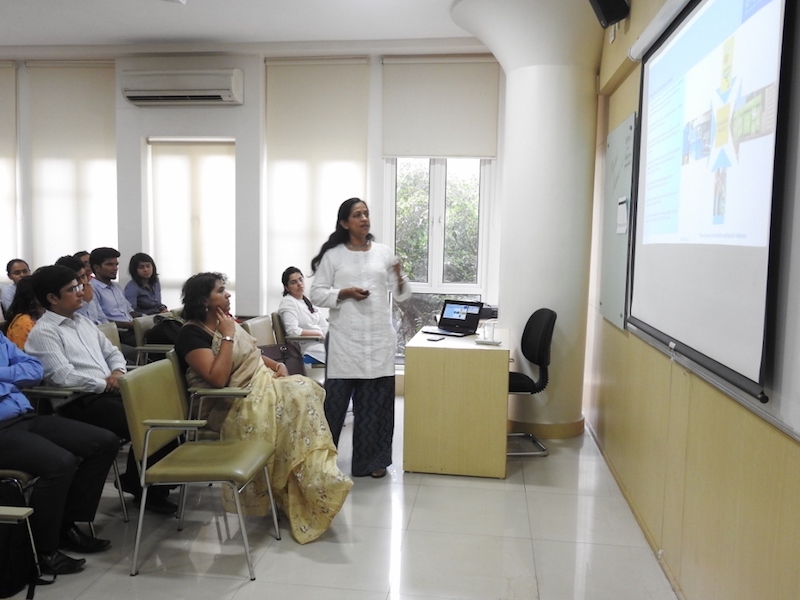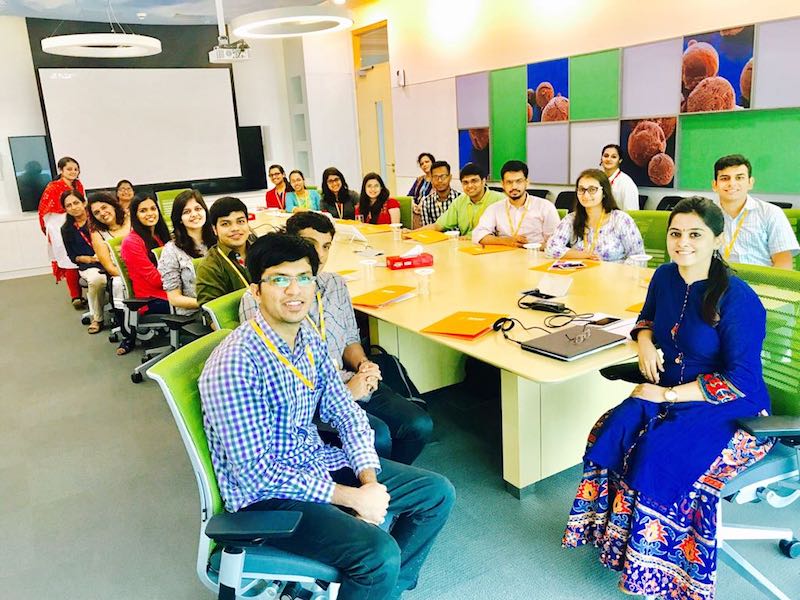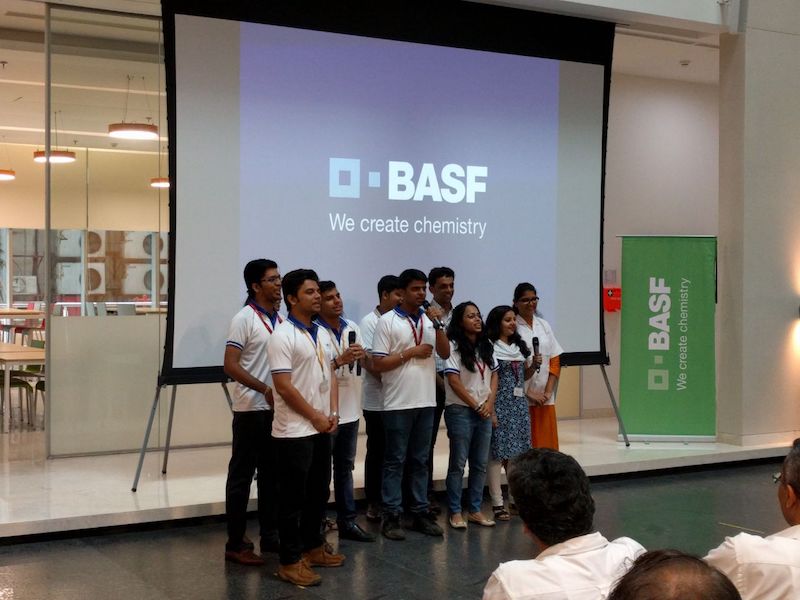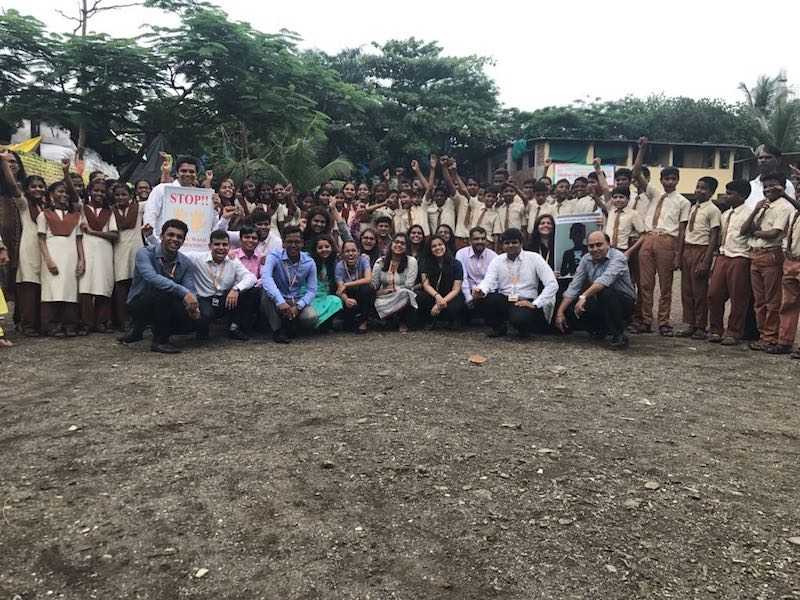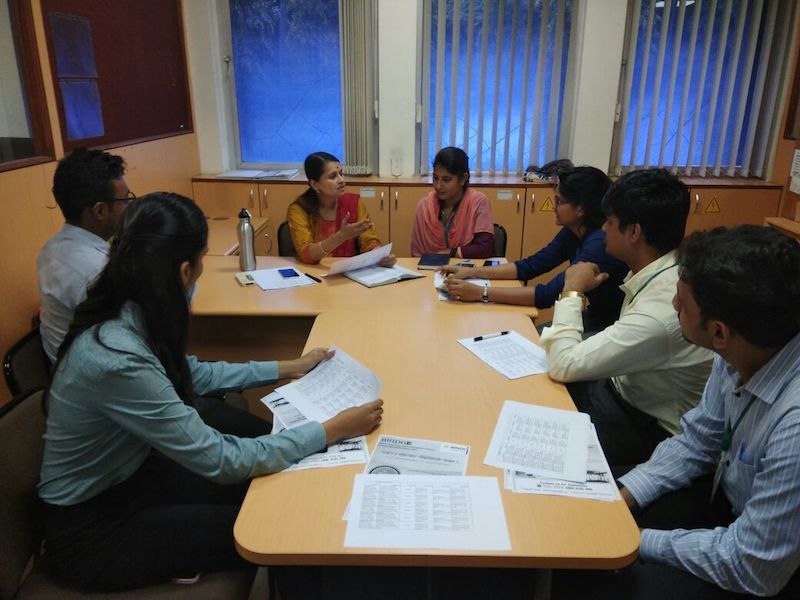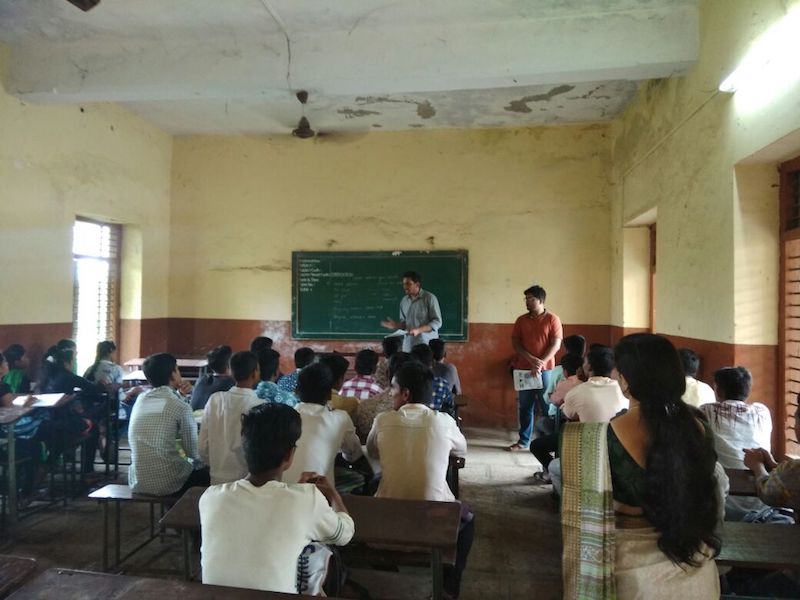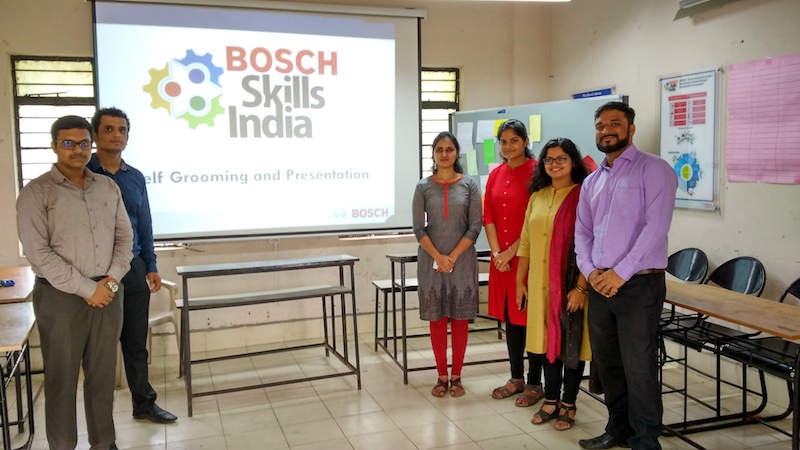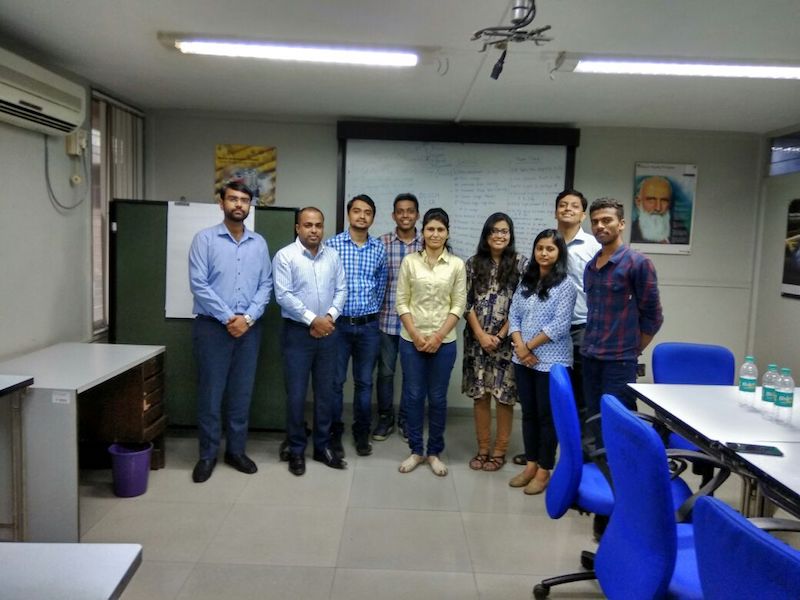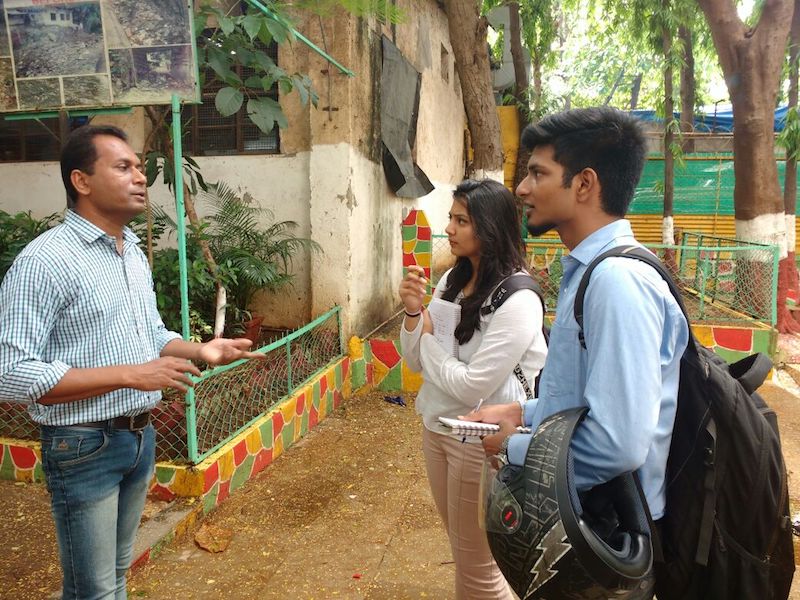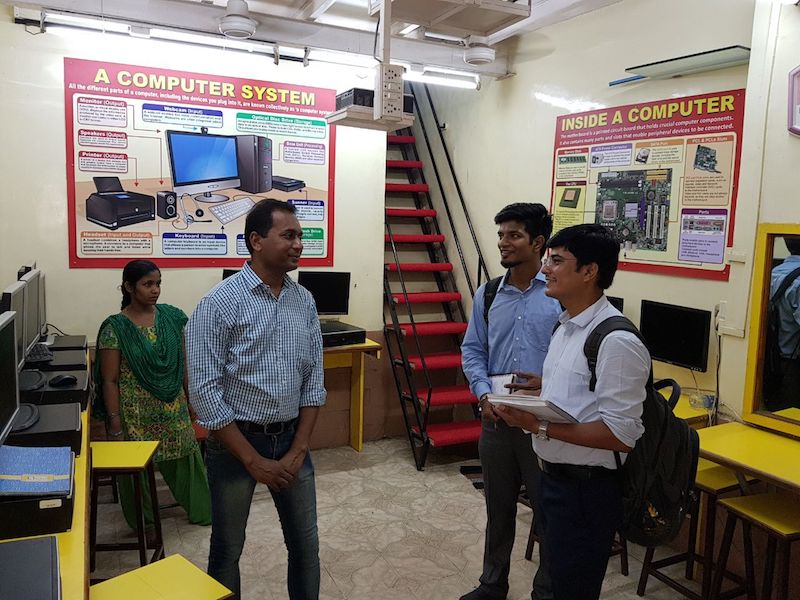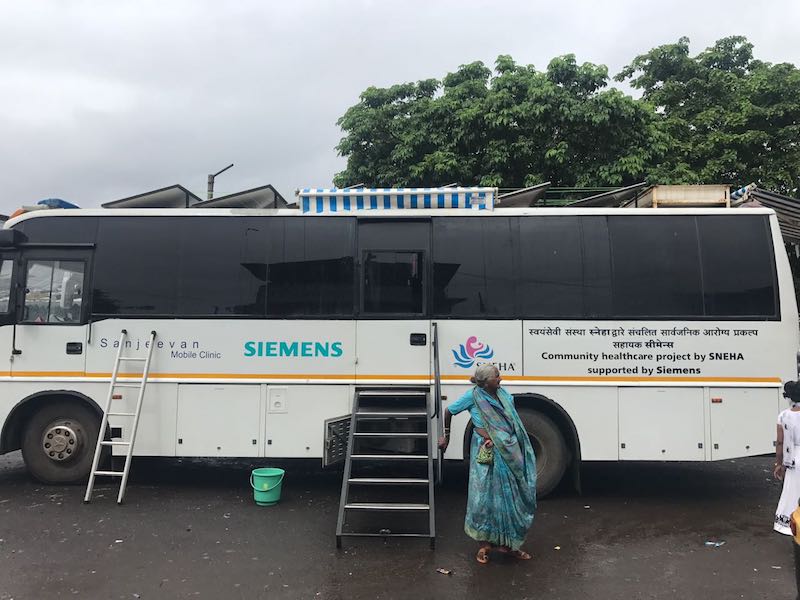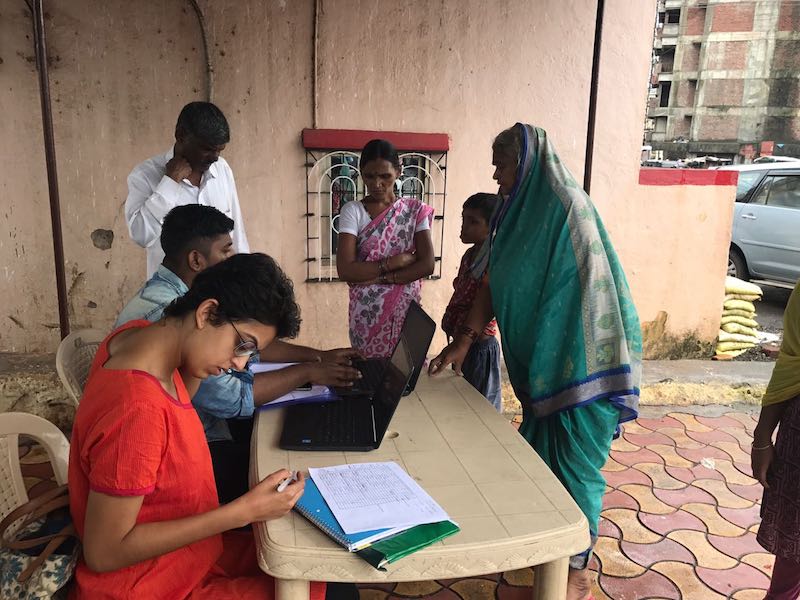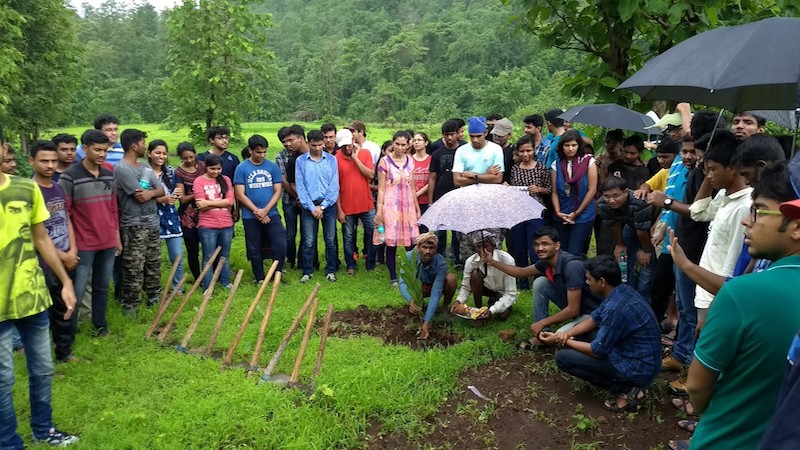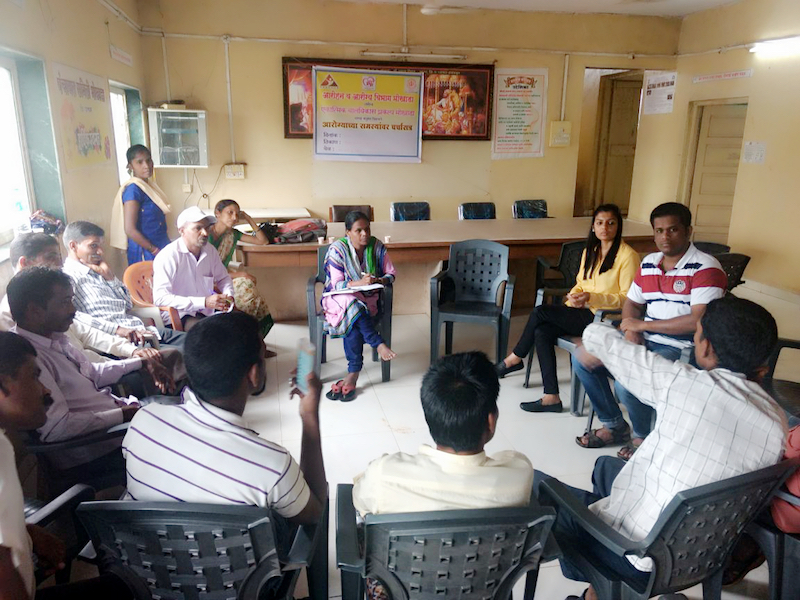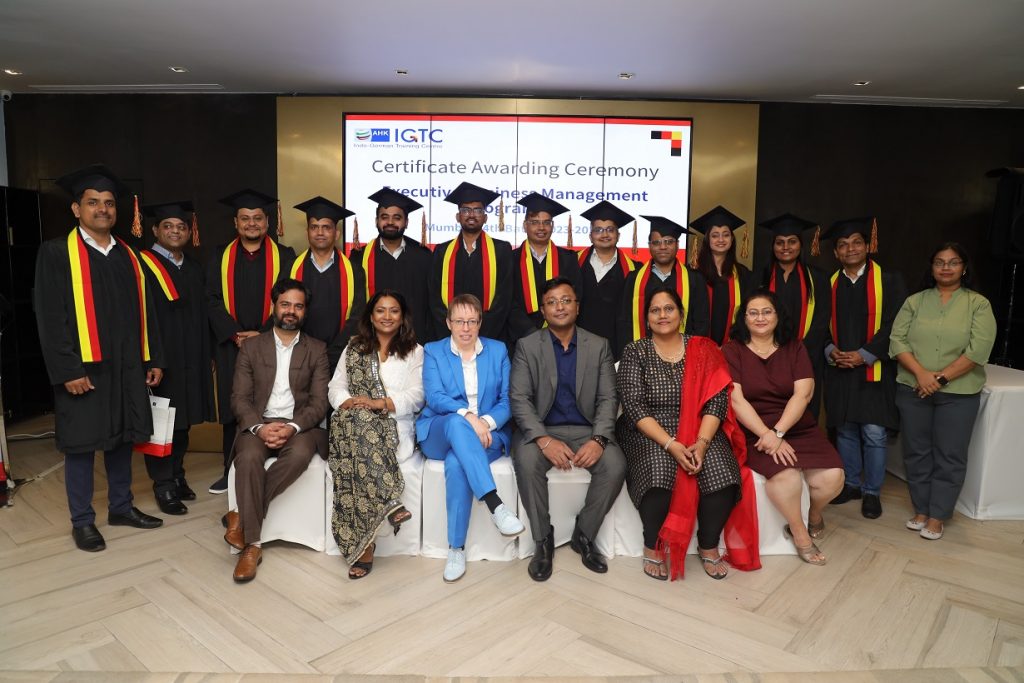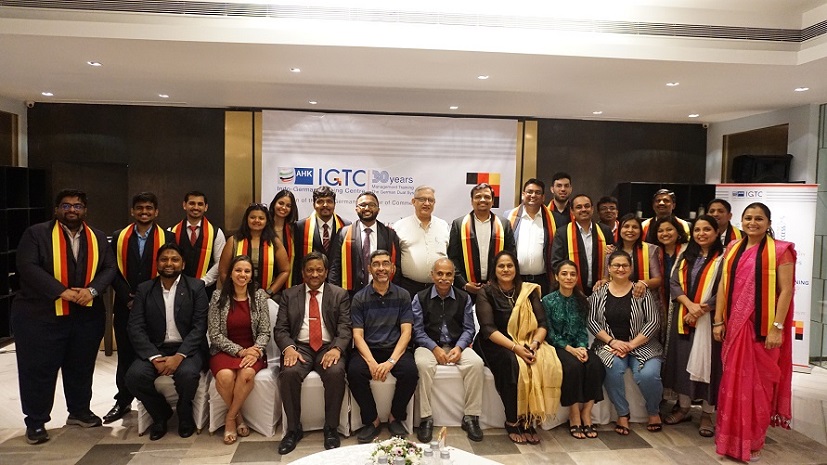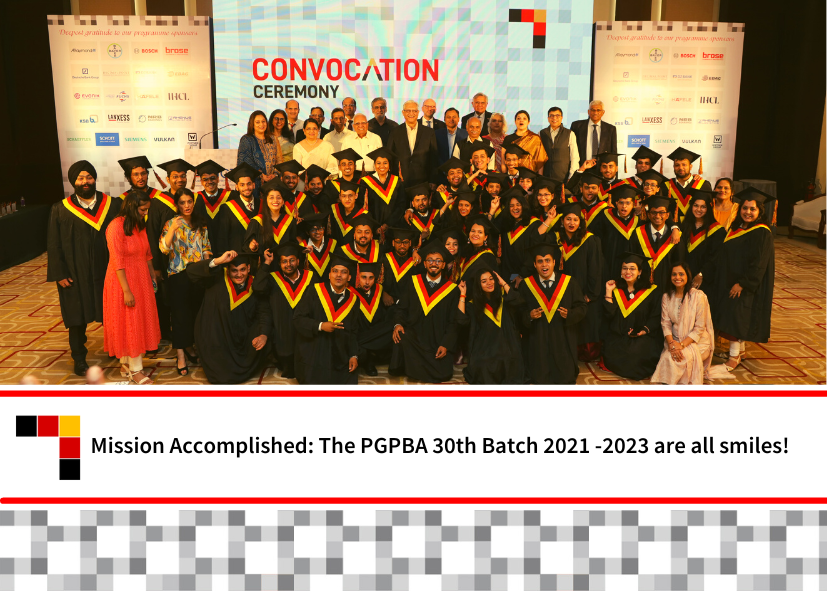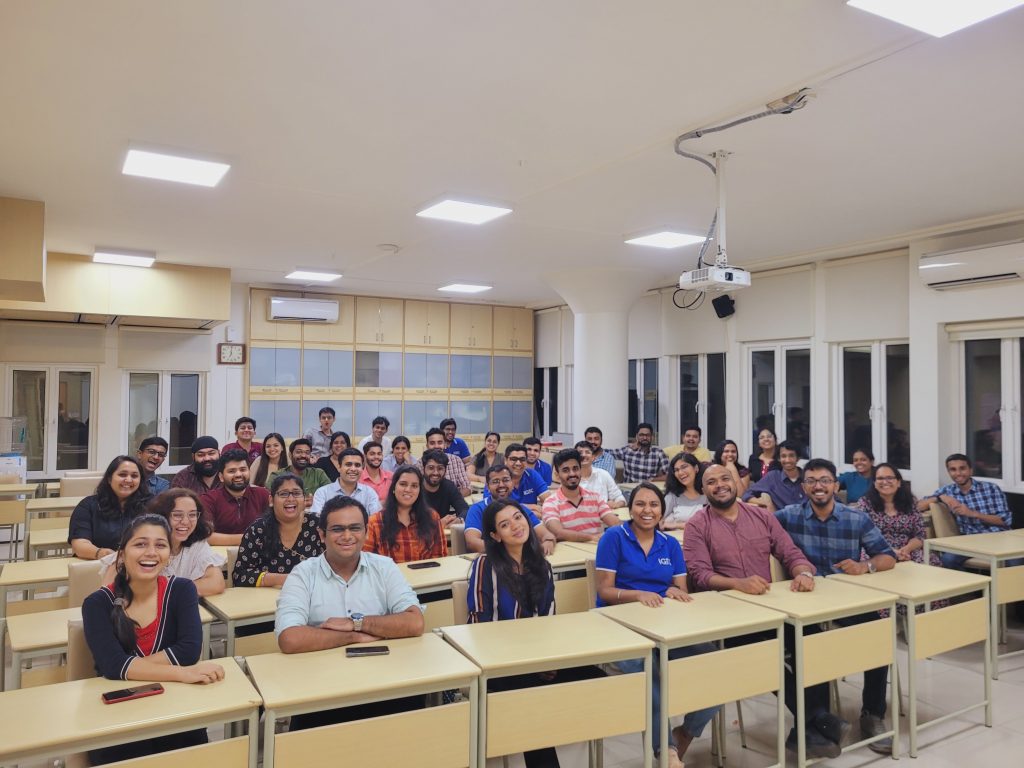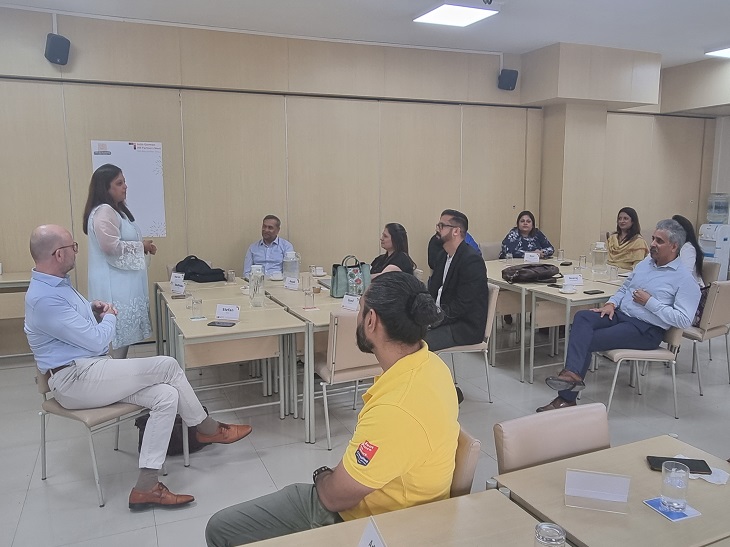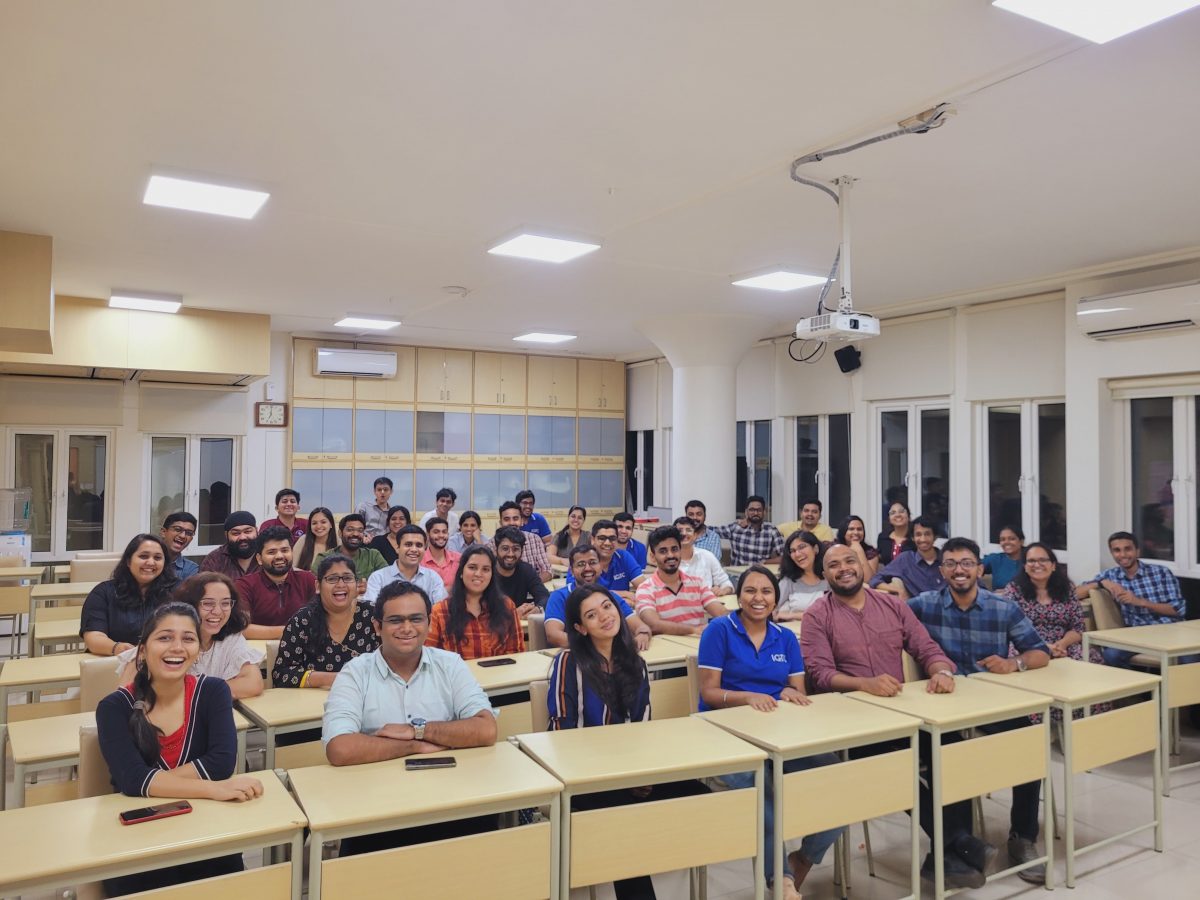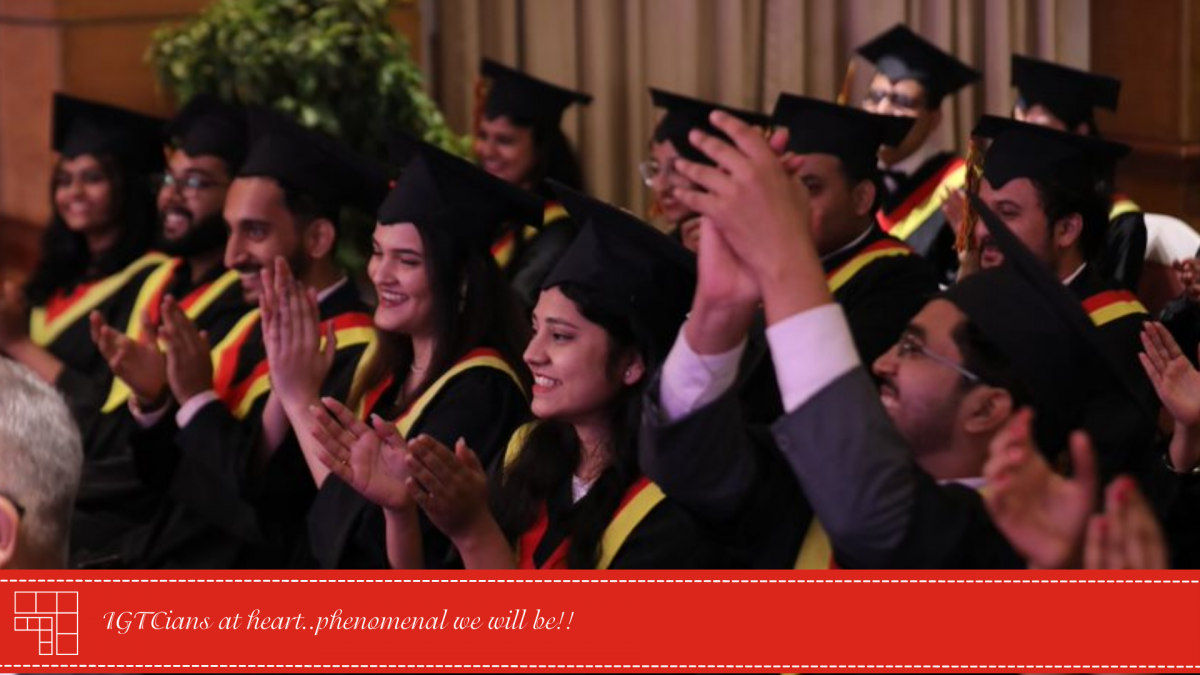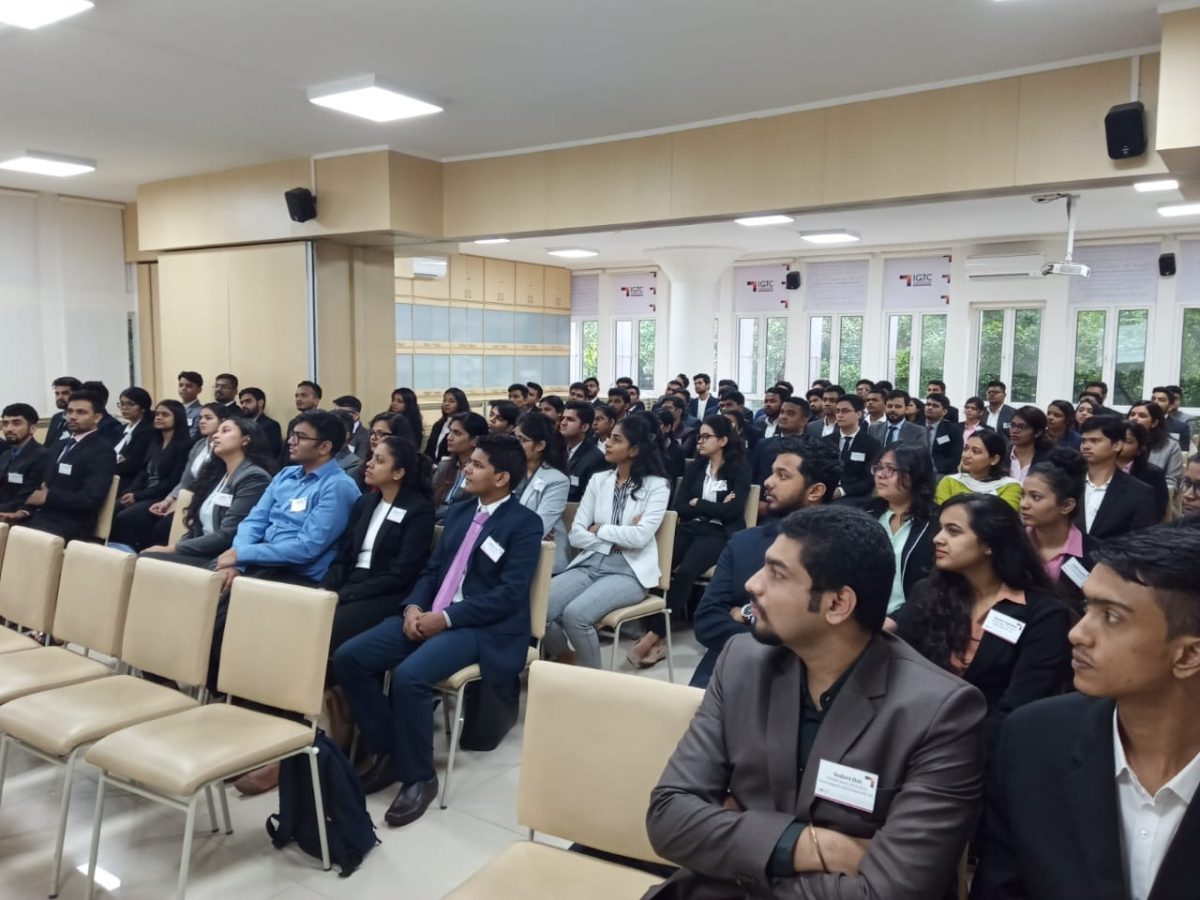IGTC students understand the true meaning of Triple Bottom Line
60 students engage in a two-week CSR immersion
July 2017 brought in the most inspiring experience for 60 PGPBA students at IGTC Mumbai, as they participated in a two week Corporate Social Responsibility (CSR) immersion from 17th July to 28th July, 2017. Education, healthcare, hygiene and sanitation, skill development and livelihood were some of the spheres that the students worked on, with tremendous support from the various partnering organisations.
BASF India
15 IGTC students were associated with the landmark CSR project at BASF. This project was initiated to commemorate the company’s completion of 150 years. A detailed presentation about the project and the role they had to play was given to the students.
For the 1st week, they were split up into teams to penetrate stores at Turbhe – the slum earmarked for the project. A 10-minute walk from BASF office, Turbhe is home to about 74,000 people and touted to be the second largest slum after Dharavi in Mumbai. The objective was to reach out to residents, doctors, chemists, schools, NGOs, etc. and find out as much as possible about the existing water supply, sanitation facilities and women’s hygiene practices. They also had to assess the impact on health and overall well-being of the people owing to poor facilities, how the residents perceived the provisions and amenities given to them and their willingness to opt for better solutions provided by BASF.
Armed with very useful data and compelling insights, they stepped into the 2nd week of the project where the task was to analyze the data they had and create three consolidated modules on Finance, KPIs and Awareness- all ultimately required to produce a successful and self-sustaining model for three sub-projects namely; Water ATM, clean refurbished toilets along with a sewage treatment plant and a unit producing bio-degradable sanitary napkins.
Bosch Ltd.
Bosch has a very prestigious 3-month, short-term CSR programme called Bosch’s Response to India’s Development and Growth through Employability Enhancement (BRIDGE), which focuses on enhancing employability and life skills to school dropouts – youth between the 18 – 25 age group. This specially designed programme is delivered by Bosch through BRIDGE centres across India. After completion of the BRIDGE program, Bosch provides 100% job placement assistance to the candidates in finding job in semi-organized or organized sectors.
The Bosch CSR team visited IGTC and gave the PGPBA students a detailed briefing on the BRIDGE programme. 21 IGTCians volunteered to work with the Bosch team for this important project. They were divided into three groups for different locations – 6 students for Nasik, 5 students for Pune and 10 students for Mumbai.
The CSR immersion began with a more detailed orientation for all students at the respective Bosch offices. They were briefed on mobilization pitch, strategy, and new centre sign-up pitch to be made to the principal. Also all the supportive promotional materials – banners, pamphlets, brochures – were provided to everyone. A detailed schedule was prepared for the next 10 days. After resolving the queries, all the trainees visited to an ongoing batch of BRIDGE class, as they wanted to understand the content and effectiveness of it.
The IGTC team in Nasik generated more than 70 enquiries, out of which 34 enrollments happened in 6 days and 2 centres showed interest to support the BRIDGE programme. The Pune team managed to mobilize 7 communities, out of which more than 65 interested students gave their details. In Mumbai, IGTCians visited 45 colleges in various localities such as Nerul, Borivali, Vashi, Panvel, Khar, Navi Mumbai, Dadar and Thane out of which 15 colleges showed interest. Also 15-20 employers were contacted in retail and service domain to support employment of the students completing the programme.
Evonik Industries
The World Business Council for Sustainable Development (WBCSD) has proposed 17 goals for steady and environmentally sustained development of organizations to be achieved by 2030. As a member of WBCSD, Evonik Industries has taken up the responsibility for Sustainable Development of Society by concentrating on 5 of the 17 goals – Eliminate Poverty, Quality Education, Sustainable Cities, Gender Equality and Good Health for all ages.
Keeping this is mind, IGTC students brainstormed and proposed ideas to achieve these goals. Some of the ideas suggested were distribution of packaged food bags in slum area, voluntary teaching in semi-urban area of Mumbai, cleaning certain areas in Mumbai to support our Prime Ministers Swachh Bharat Abhiyan and arranging health checkup camp in schools. The students also visited an NGO in Saki Naka who provided quality education for underprivileged children, along with giving vocational training and basic software education like Microsoft Word Document, Excel, Tally etc. to young adults.
At the end of their 2 week stint, they proposed a strategy for the CSR team of Evonik which will be executed in November 2017.
Siemens Ltd.
Siemens involved the IGTC students in two projects –
‘Sanjeevan Mobile Clinic’ in Thane with the NGO SNEHA
‘Education Livelihood, Healthcare and Governance’ for the people of a small town called Jawhar with the NGO AROEHAN
The Sanjeevan Mobile Clinic has a doctor, a pathology lab, an x-ray machine and an ECG machine, all provided by SNEHA. The objective was to create an awareness that even the underprivileged sections deserve a good and a healthy life. The students visited various communities in Mumbai and researched the problems faced by the residents of these communities. They found out there are no solid waste disposal solution and clean drinking water available in certain areas. The communities are financially vulnerable and cannot afford to retain a normal healthy lifestyle. Then they had to propose a plan on how Siemens can help these communities. Team IGTC helped SNEHA do the cost benefits analysis and study of mobile healthcare services around the cities.
Siemens and the NGO Aroehan work collaboratively to improve the standard of living of the people in Jawhar in four main verticals – Education, Livelihood, Healthcare, and Governance. To begin the IGTC students carried out a Tree Plantation Drive with some other trainees at Siemens. Post the drive, these students worked closely with Aroehan to help them in their initiative. The first project was to create a brochure that would help them advertise their initiatives in the various verticals to the outside world. Then, the students identified a new problem; Jawhar had the only government hospital amongst 19 villages, which resulted in patients travelling from far to reach the hospital. IGTC students met with local drivers and helped Aroehan sign a rate contract with them, so that these drivers would transport pregnant women to the hospital, free of cost, whenever required. The students also helped to create an awareness about the importance of sonography. They created and showed a documentary to pregnant women and encouraged them to do sonographies, so that corrective actions could be taken at the right time. By the end of the project, IGTCians helped Aroehan create an MIS software using MS Excel to capture and combine data of all villages which would help in the efficient working of the NGO. This eliminated the manual recording of all data and made analysis related to availability of resources and implementation of strategies much more scientific and effective.
Students of IGTC Mumbai
“We felt honored at the thought of being able to work with such prestigious companies on their various CSR projects. The experience was indeed enlightening and educative on how value cannot always be in terms of profit, but can also be in terms of encouraging the well-being of the society. This could have never been taught in any classroom, but only when we go out in the field and understand it for ourselves. We sincerely thank IGTC for this wonderful experience.”

